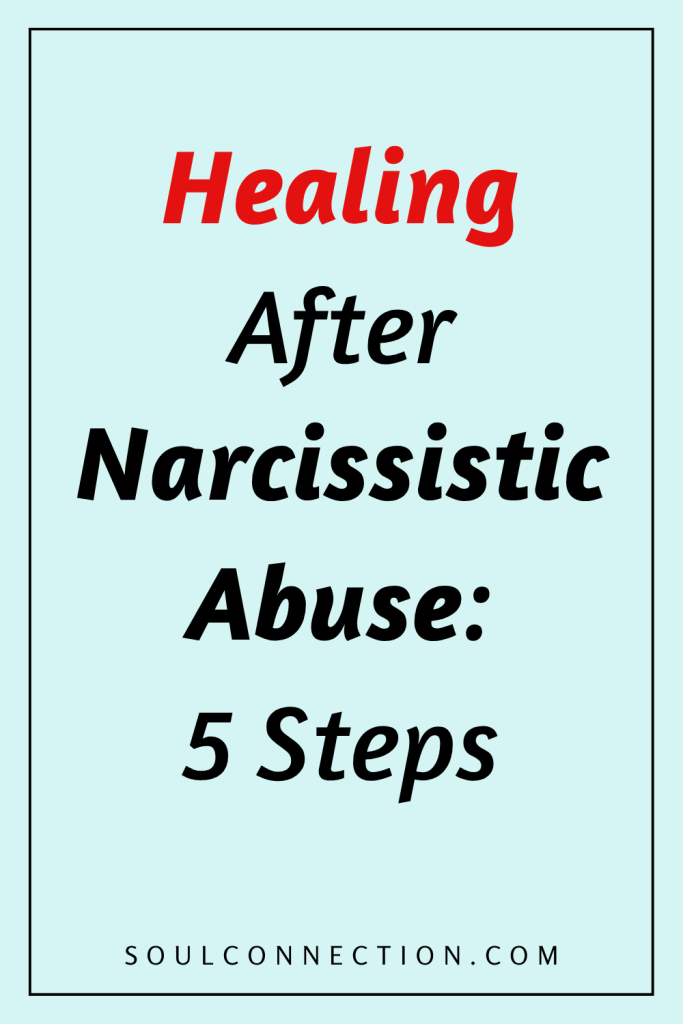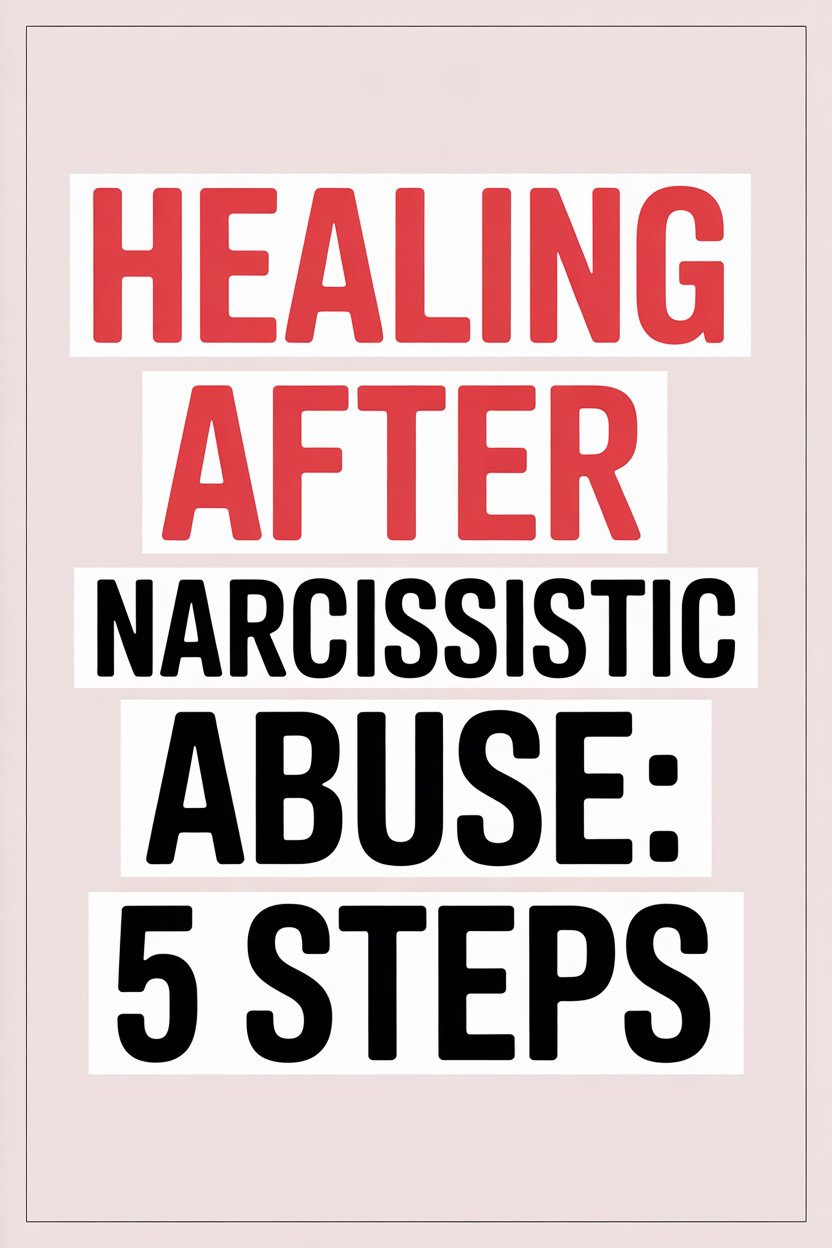Escaping a relationship with a narcissist is like stumbling out of a haunted house—your heart’s pounding, your head’s spinning, and you’re not entirely sure if you’ve just survived a psychological circus or an episode of reality TV.
Well, now the cameras are off. The real work—your healing—begins.
If healing sounds about as tempting as unblocking a clogged drain, take heart: it’s possible, necessary, and far less gross.
Here are five steps to help you pick up the pieces and create something stronger (and, frankly, way more stylish) than what you started with.
1. Recognize What Happened (No, You’re Not Overreacting)
There’s a special kind of mind-melt that comes with narcissistic abuse. Are you dramatic, or did things actually happen the way you remember?
Spoiler: they happened. Gaslighting thrives in this confusion, making it tough to trust your own memory.
Start by calling out the reality. That twisted logic, the love-bombing, the subtle digs about your hair, your friends, your very existence? Classic narcissist playbook. Jot it down, talk it out, or meme it if you must.
Validation begins with admitting that what you went through was real—and it was not your fault.
If you catch yourself defending them (“But they were so charming, sometimes!”), remind yourself that charisma is not a substitute for kindness. If it was, we’d all be dating magicians.
2. Create Distance—Physical, Emotional, Digital, You Name It
If narcissists had a superpower, it would be emotional boomeranging. Just when you’re convinced you’re free, back they come with a text, a like on your dog’s Instagram, or a friend request from “Chris—Definitely Not Your Ex.”
Block, mute, unfollow. This isn’t about being petty; it’s basic hygiene. Distance buys you space to reclaim your own thoughts.
If kids or co-parenting are involved, keep things transactional, like two diplomats who barely tolerate each other at G20 summits.
No-contact is the goal, but low-contact with boundaries is sometimes the best you can do. Scripts help. Try: “I will only discuss our child’s school pick-up” or “Happy Holidays. I have nothing else to add.”
Practice in the mirror with your best deadpan. Oscar-worthy, truly.
3. Rebuild Your Sense of Self—One Small Win at a Time
Narcissistic abuse turns your self-esteem into a half-deflated pool toy. You might find yourself wondering what you ever liked, wanted, or stood for.
Now’s the time for a little self-centeredness (the healthy kind, not the Kardashian-at-the-met-gala kind). What makes you smile, even if it’s just an overpriced coffee or a walk through the park? Try things.
Say yes to invites and no to guilt. Celebrate every wobble towards independence—a new hobby, a friend who hasn’t heard your ex’s name, a day when you don’t check your phone every five minutes.
Therapy works wonders, especially with someone who gets narcissistic dynamics. Journaling helps. Reclaim your quirks—those things they rolled their eyes at are probably your best features.
4. Learn to Spot Red Flags Before They Turn Into Red Carpets
Narcissists don’t wear name tags, and they certainly don’t announce their arrival with a villainous soundtrack. But patterns emerge, and with a bit of reflection, you can learn the early warning signs.
Trust that uneasy feeling. When someone is all intensity and no vulnerability, or their apologies come with a side of blame (“Sorry you feel that way”), take note.
Set boundaries and watch their reaction—if they treat your limits like an insult, don’t wait for Act Two.
Practice speaking up. “That doesn’t work for me.” “I need some space.” If that feels like trying to order a coffee in Klingon, you’re not alone.
It gets easier, and each time you do it, you’re teaching yourself that your comfort matters.
5. Build a Support Squad—And Actually Use Them
Surviving narcissistic abuse can feel isolating, especially if your ex did an Oscar-worthy job of cutting you off from friends and family. Now’s the time to gather your people, even if it starts with one beleaguered mate and a group chat.
Seek out folks who listen, not just those who dish out advice at the speed of light. Let people know you’re not fishing for solutions, just support.
If you’re not ready to talk, that’s fine too—sometimes just being in the same room with someone who isn’t trying to manipulate you is healing.
Online support groups can be a lifeline, especially those filled with people who “get it” (and have the memes to prove it).
Therapy is the gold standard, but don’t underestimate the power of a good friend, a decent cup of tea, or a dog who thinks you’re a superstar.
Creating a Future That Isn’t Defined by the Past
Healing after narcissistic abuse is messy, nonlinear, and—let’s be honest—occasionally infuriating. One day you’ll feel as strong as a superhero, and the next you’ll be crying over a playlist you once shared. That’s normal.
Each step is a victory. Each boundary, a tiny revolution. The more you practice compassion for yourself, the less power the past has over you.
In time, you’ll find your instincts sharpening, your confidence returning, and your sense of humour—possibly darkened, but very much intact—surfacing again.
The haunted house is behind you. Take a breath. The world is full of people who aren’t looking for a mirror, but genuinely want to see you.
Grab hold of that and don’t let go.


